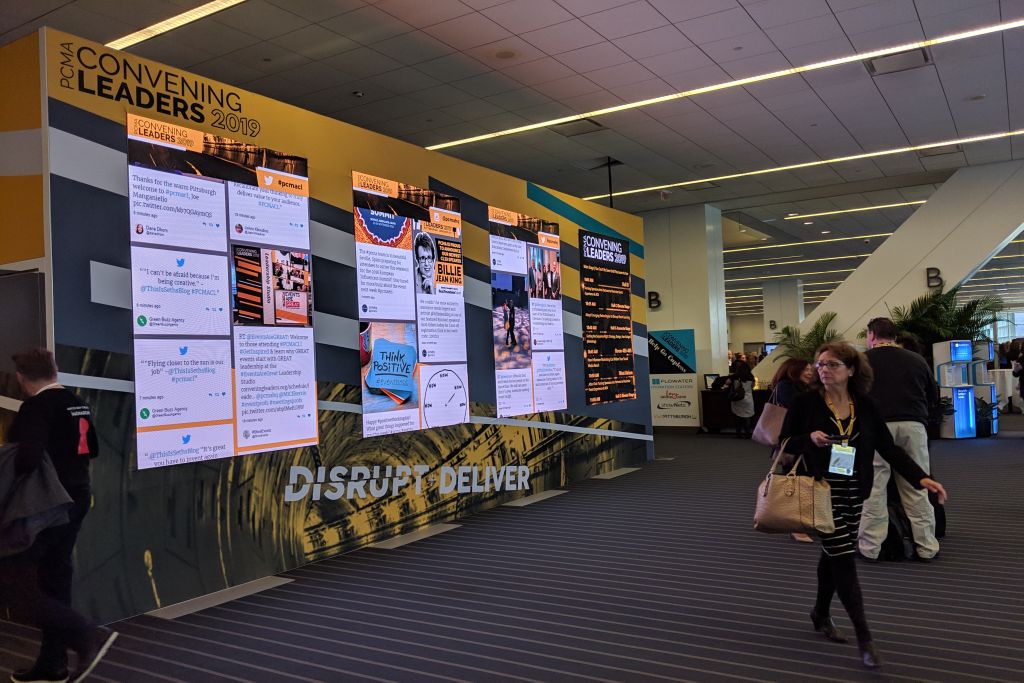Pittsburgh Turns to Tech for Future Meetings Appeal

Skift Take
With high costs and attendees tired of visiting the same destinations, more meeting planners are holding their events in secondary cities that offer not just reduced costs but genuine authentic attractions and event spaces.
So how does a city retool to brand itself as a place that is not just friendly to growing industries like digital technology, but take advantage of its existing character and infrastructure at the same time?
This is the challenge for Craig Davis, CEO of Visit Pittsburgh, who sat down during the PCMA Convening Leaders convention this week in Pittsburgh's David L. Lawrence Convention Center.
"We really do punch above our weight," said Davis. "It's the kind of a city that people probably don't think about, but yet we keep getting these accolades that are well deserved. There are 90 distinct neighborhoods here and there's still a lot of originality with a lot of ethnic diversity to them. So that's a really big selling point that we have."
The convention center, which was renovated in 2003, has made the destination more attractive to meeting planners who want a flexible space for their event in a location that has more character than some of the more popular urban destinations in the U.S.
"We have our competitive set," said Davis, mentioning Louisville, Baltimore, Columbus, and Cleveland, "but we have a relatively new convention center. It's nice. It's on par with anything out there. It's green and I think that that strikes a chord."
He points to Pittsburgh's emerging tech industry focused on robotics and automated vehicles as crucial to establishing the reputation of the city. It also has a robust theater district downtown, the result of various foundations remaking the city's core. As the low cost of living and lifestyle attracts more technology workers to the area, so too will visitation to the city grow.
"Seattle's done a great job with technology tourism, we're working on that right now," said Davis."It's really still marked around this welcoming place that's really super authentic but has all the amenities that you need. You can go to some places that are really authentic, but they are really like they were back 30 years ago. We don't have that problem. I think it's just trying to preserve [the character] we have."
As Pittsburgh slowly changes to incorporate new residential developments and the increased presence of technology workers, it will be interesting to see how its reputation evolves in the meetings and events sector.
Lesser known cities are earning an enhanced reputation in a world where events are more ready to integrate local flavor into their design.
Marriott, PCMA Examine Future of Events
Marriott International and PCMA partnered to host a panel discussion during PCMA Convening Leaders and released a report on emerging trends for event planners through the prism of attendee experience.
Emotional intelligence, orchestrated serendipity, and multi-modal design are among the trends sussed out from a series of roundtable discussions.
Of note was the idea that instead of digital tools personalizing options for attendees based on demographic or psychographic information, apps will have an idea of an attendees emotional state and respond accordingly. Feeling hungry or bored? Well, go try something new, says a text message or push notification on your phone.
"One size fits all is dead, it doesn’t work," said Kate Fairweather, senior consultant at Fahrenheit 212, who helped develop the research. "We’ve moved beyond demographic data points into what makes people tick. We need to understand those more emotional points of information to create tailored experiences for them, going beyond demographics into extreme individualization."
Orchestrated serendipity, or creating happy accidents for travelers or attendees, has been a trend Skift has monitored for some time and now appears ready to enter the mainstream.
You don't need machine learning or artificial intelligence to design events that create powerful, seemingly accidental moments of connection or education. It can be as simple as rearranging elements of the event to shift the movement and behavior of attendees, or cancelling sessions to give attendees more opportunities for valuable face-to-face conversations.
You can check out the full report below.
[gview file="https://skift.com/wp-content/uploads/2019/01/Future-of-Meetings-and-Events-PCMA-Marriott-FINAL-1.2.19.pdf"]





